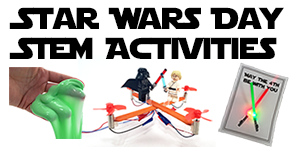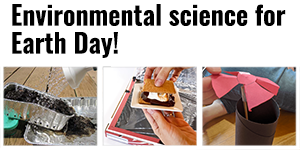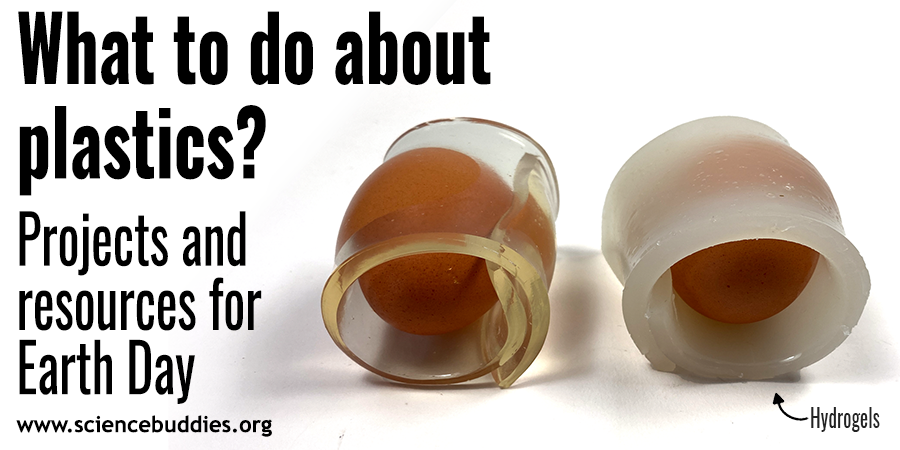Surviving a Zombie Apocalypse
Hands-on science and an understanding of electronics, chemistry, physics, and other STEM subjects can improve your odds of survival in the event that zombies come to town, or in the face of some other unexpected disaster.

At one time it was vampires. Now and again there are werewolves and witches or even wizards and Muggles. But with the hit "Walking Dead" (AMC) television series entering its seventh season, and the new "Fear the Walking Dead" (AMC) that premiered last month, today's hot plot seems to lie in the grim realities of a zombie apocalypse. Teen viewers are not new to apocalyptic scenarios, of course. In recent years, book and movie series like Hunger Games, Divergent, and Maze Runner have cemented the depiction of dystopian society as a niche in teen literature. Whether it is the "capitol" on the other side or zombies, the classic theme of good versus evil is a favorite, and survival is always at stake.
Lots of variables, including luck, timing, and aim may influence one's chances of survival in a zombie apocalypse, but being able to take what is available and hack, create, or reconfigure something to make a necessary (and even life-saving) solution may make a big difference in how things go—or how long you last against a hungry mob of the walking dead. If you can scavenge necessary materials, think creatively and with an engineering or science-oriented mindset about how to use materials you can find (or identify what materials might work), and convert science and engineering knowledge to practical DIY solutions, you may increase your odds.
A swarm of stumbling zombies whose only goal is to eat you is hopefully not something you really need to prepare for, but there are plenty of real-world disasters in which science-savvy survival skills can be very important. Even a week without power due to extreme weather can quickly turn daily life into something that feels like a survival-themed or end-of-the-world TV show. If you ever end up in a disaster or survivalist situation, be prepared to look around for possible solutions rooted in science and engineering. With practical science, technology, engineering, and math (STEM) skills, you have a toolbox of knowledge that can help because you may need to do more than just start a fire. Starting a fire is a great survival skill, but most likely, it isn't the only one you are going to need.
Hands-on science project ideas like these can help give you science experience that might come in handy in a zombie apocalypse, or in other unexpected situations:
- Build Your Own Crystal Radio: without electricity, you may quickly lose communication with the outside world (or even the local news). While a crystal radio may not be a good way to tune in to the weekly top 40 countdown on your favorite station, it is a way to tap nearby AM radio stations even when you have no power. (One of our Science Buddies staff scientists did use his crystal radio during a multi-day blackout this year!)
- Human-Powered Energy: when electricity is the goal, being able to turn a coil of wire and some magnets into a shake-it-up electrical generator to power a device like a flashlight could bring real light to a dark situation.
- The Strength of an Electromagnet: in a pinch, you can create a simple electromagnetic field using a bolt, some wire, and a battery. How does the number of times you wrap the wire around the bolt change the power of the electromagnetic field?
- Learn How to Disinfect Contaminated Water: access to clean drinking water is always important, and in a survival situation, being able to set up a system for disinfecting water may eventually be necessary. With the SODIS method of disinfection, you can use recycled bottles and the sun to disinfect water.
- Now You're Cooking! Building a Simple Solar Oven: if you can scrounge up a cardboard box and aluminum foil, you can rig a solar oven for practical cooking or for an indulgent batch of s'mores once you have fought off another wave of the undead.
- Homemade Compass: with a few household materials, you can make a compass to help you navigate if you are forced to leave your location. Never underestimate the fact that getting back to home base alive partly depends upon knowing how to find your way!
- Cold Room? Heat It Up with A Homemade Solar Air Heater: depending on the time of year and climate of your location, dealing with extreme weather may be a real concern. A homemade room heater powered by the sun can help everyone sleep more soundly. What will you need? Big pieces of cardboard, white gesso paint, a couple of aluminum pans, lots of heavy duty tape, and other assorted supplies you can probably rummage in an abandoned garage.
- Are You in Hot Water? Use the Sun's Energy to Heat Your Own Water: dealing with zombies can be pretty messy business, and a hot shower might be more necessity than luxury at some point. Either way, using batch solar collectors made from plastic bags, you can use the sun to heat water. For the process to be effective, you will need to know what color bags to use and why!
- The End Zone: Measuring Antimicrobial Effectiveness with Zones of Inhibition and Natural Antimicrobial Agents *: you might need to get to a university lab to gather supplies, but if there are medical conditions to address, a microbiology experiment like this one could help you determine whether or not local plants and herbs can be used effectively as antimicrobial agents against certain bacteria.
- Make Your Own Low-Power AM Radio Transmitter: you would need to scrounge up the necessary supplies, but building a simple AM radio transmitter could help you make contact with other survivors. How far can this kind of receiver broadcast and why?
- Make Ice Cream in a Bag: after a long day, it only takes a few ingredients to celebrate survival with some homemade ice cream in a bag!
Extreme Survival Skills
For the truly adventurous, or the real zombie apocalypse genre fan, try one of these explorations because you never know when experience with one of these solutions might really come in handy:
- Making Mixtures: How Do Colloids Size Up?: with an understanding of colloidal solutions and non-Newtonian fluids, you may be able to slow down the undead with something that behaves a lot like quick sand.
- Under Siege! Use a Catapult to Storm Castle Walls: use a ping pong catapult to explore the physics behind launch angles and trajectory. You will need a firm understanding of these principles, and good aim, if launching projectiles becomes necessary!
- Getting a Bang Out of Breath Spray: Studying the Chemistry and Physics of a Small Explosion: explore the chemistry and physics behind a small explosion using film canisters that are propelled across the room because of the energy created by a chemical reaction.
- Build a Gauss Rifle!: with magnets and ball bearings you can create a magnetic rifle and a lot of noise. Learn more about how magnetic acceleration stages work and how the number of these stages is related to a ball bearing's initial velocity.
- Riding on Air—Build a Real Hovercraft: in a real apocalypse, you may find plenty of abandoned cars, but exploring the science and engineering that goes into building a hovercraft is fun to consider as you contemplate ways to escape the masses!
- From Trash to Gas: Biomass Energy: understanding how to turn trash (or decaying matter) into energy could be really useful in a long-term survival situation.
In the end, the more science you can draw upon, the better your chances of survival may be. So... why not explore science, technology, engineering, and math now? You never know when disaster (or a zombie apocalypse) is going to strike!
Categories:
You Might Also Enjoy These Related Posts:
- Inspiring AAPI Scientists and Engineers - Asian American and Native Hawaiian/Pacific Islander Heritage Month
- Plastics and Earth Day - Science Projects
- Arduino Science Projects and Physical Computing
- 10+ Robotics Projects with the BlueBot Kit
- 5 STEM Activities with Marshmallow Peeps
- March Madness Basketball Science Projects: Sports Science Experiments
- Women in STEM! More than 60 Scientists and Engineers for Women's History Month
- Explore Artificial Intelligence and Machine Learning with Student AI Projects









